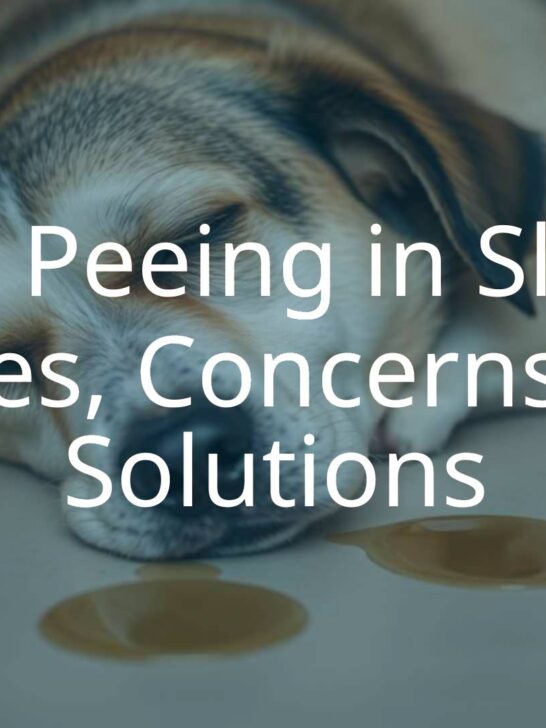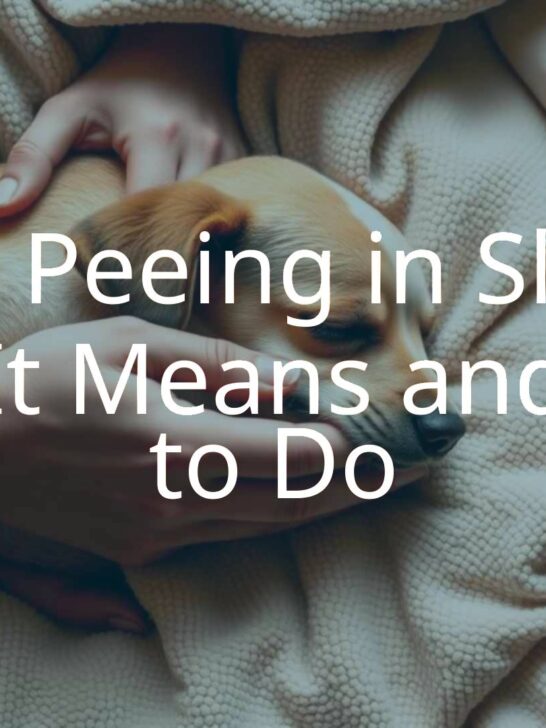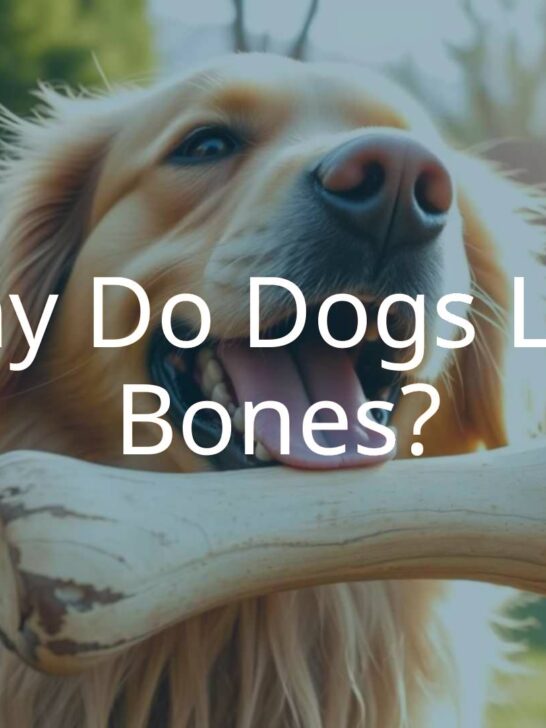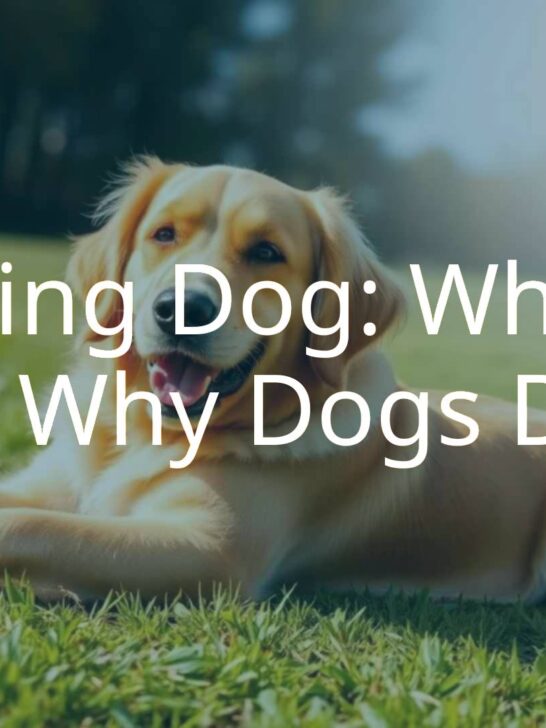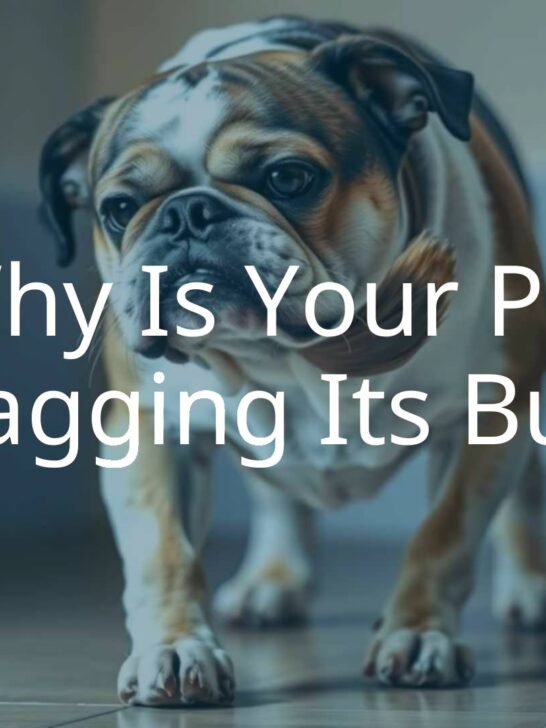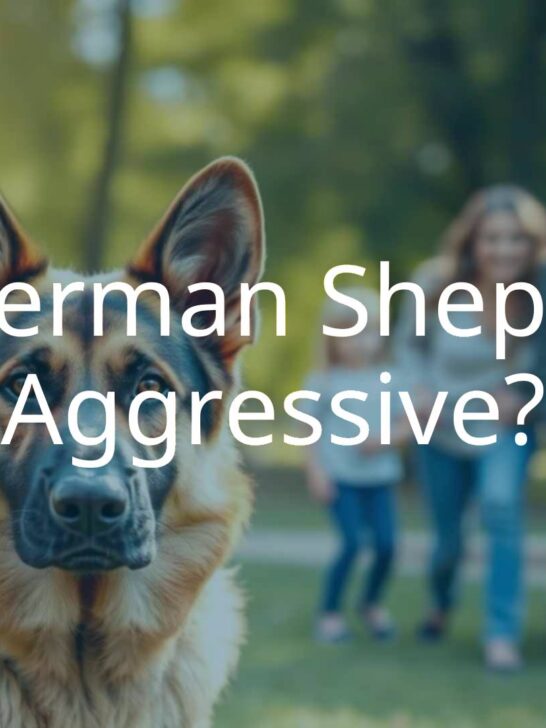Why Does My German Shepherd Howl? 9 Real Reasons
Everything is peaceful at home when suddenly your dog makes a sound that sends shivers down your spine.
They’re howling, loudly, though he’s in the house and sitting close to your side.
Once you’re able to relax again, you realize he’s done this before, but why?
The 9 main reasons why your German Shepherd howls are:
- To define territory
- Communication
- Separation anxiety
- Looking for attention
- Anxiety of being isolated
- Sick or injured
- Noise
- Excitement
- Irritation
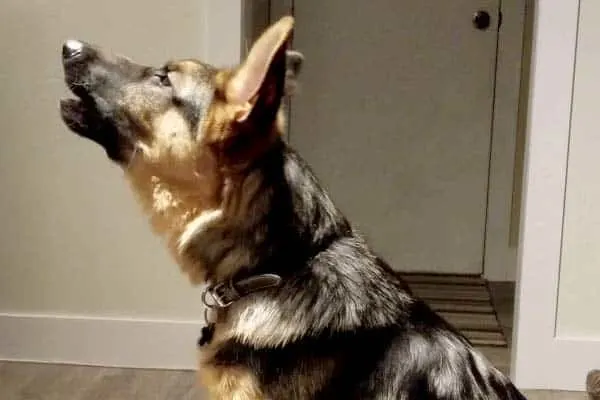
Thinking back a bit over all the times your German Shepherd has let out a good howl, you notice that there are some things that they react to consistently, like a police car or fire truck siren.
But other times seem pretty random. There must be something going on here that’s prompting all this noise.
Your dog does have their reasons for howling, even if you aren’t always sure what they are.
Mainly they howl to express their feelings or to communicate.
Typically, a dog has nine main reasons that they howl. A howl may be a reaction to any one of these, or several of them at once.
Some breeds tend to howl a lot more than others, though there can be a great deal of variation among individual dogs.
Northern breeds, such as Alaskan Malamutes, Huskies, and American Eskimo dogs, are known for howling.
Hounds, including bloodhounds, dachshunds, beagles, and coonhounds, are frequently howlers as well.
Why Does My German Shepherd Howl?
It’s Territorial
One reason that your German Shepherd might howl is to define territory.
According to the Canine Journal, this is a holdover from your pet’s wolf days.
Dogs and wolves are closely related and share many of the same characteristics. Howling is one of the things they have in common.
If he howls in response to the presence of other dogs, he could well be trying to warn them to stay away from his space.
This is a typical response of a wolf pack if they become aware of another pack encroaching on their territory.
Some dogs do this as a defense mechanism.
Communication
Your German Shepherd may also use howling as a way of communicating with others as a way to let them know where she is.
Wolves do this to bring a lost pack member home.
Your dog may not have a lost pack member, but, according to CertaPet, might still howl to reach out to others.
When dogs want to communicate, a howl is a better choice because the sound carries much farther than does any other sound he might make.
This includes barks, growls, and whines.
Adult wolves know this instinctively and do not bark. Instead, they howl to communicate among themselves.
Separation Anxiety
If you leave your pet for any length of time, say, to go to work, she may howl almost continuously once you are gone.
This is her way of her communicating with you, the missing member of her pack, to get you to return home.
Dogs who howl in your absence due to separation anxiety often have other problem behaviors as well, such as chewing and digging.
Cesar Millan also suggests that your anxious dog may pace or even relieve himself in your house until you return.
This type of howling can be stopped, but it takes a lot of time and effort.
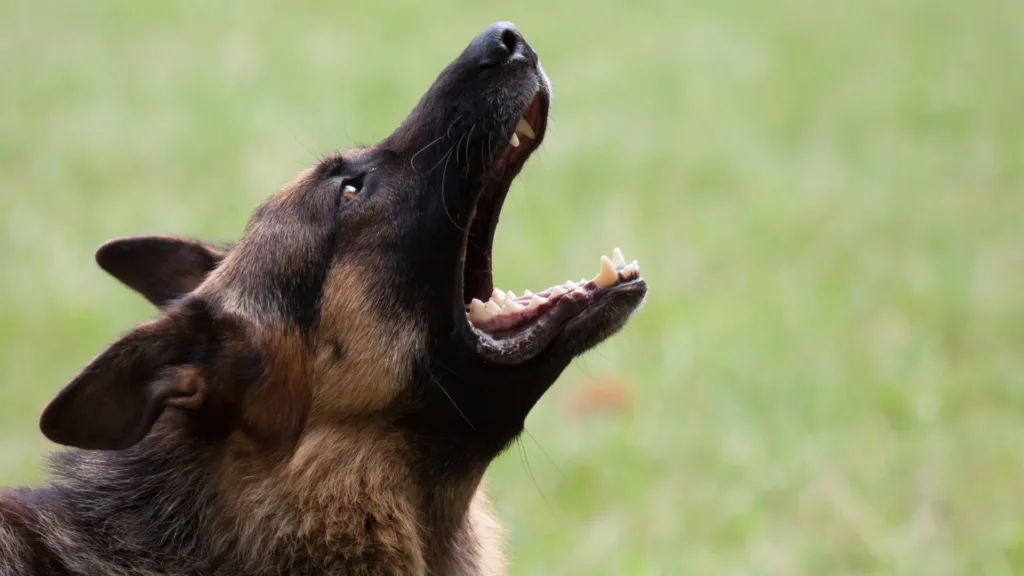
Looking for Attention
Some dogs howl to get some attention from their owners.
They may be trying to communicate a physical need, such as hunger or thirst, but frequently it is just to get your attention.
The PetHelpful website suggests that this is a natural way for your dog to reach out to you.
If your dog is resorting to howling because of a need for attention, try responding positively to that need.
Instead of scolding him for making noise, find a way to spend some extra time with him to give him the attention he craves.
Do it regularly and you may find that his howling decreases.
Anxiety at Being Isolated
Similar to your dog howling if he is seeking attention from you, an isolated dog, too, may howl to get someone to relieve his loneliness.
Dogs are pack animals, so they normally live with others.
A dog that is left alone in your home or backyard may resort to howling to let you know that the situation is terrible for him.
The Veterinary Network video on reasons dogs howls suggests that this is not uncommon behavior if a dog is left chained in the yard or is otherwise neglected or ignored.
The video also points out that this type of howling is as sad as you might think upon hearing it.
Sick or Injured
If your German Shepherd is howling because he is ill, or because he has been hurt, he should be taken to the vet immediately.
Just as when a human baby cries, it’s up to you, the one in charge, to figure out just what is going on because the one howling (or crying) can’t tell you.
When your dog howls, look closely for signs that he is in serious distress.
He may be standing or lying awkwardly, or he may be hunched over or otherwise look unnatural.
His howling is a cue for you to take a closer look, and get him to a vet immediately if you think he is in pain.
Noise Triggers
You may have noticed that your German Shepherd howls in response to various noise triggers.
Sirens are one common trigger, but your dog may howl in response to other sounds as well.
She’ll almost certainly join in if she hears other dogs howling.
It’s a natural response.
Other things can set him off as well. If you howl, he’s likely to howl back. Again, a very natural response.
He may also “sing” along to certain kinds of music, whether it is a recording or live music.
A crying baby can stimulate your dog to howl, and a variety of other noises, including doorbells, car horns, or even a squeaky chair.
Scientists think that dogs howl in response to certain types of noise, usually high-pitched and ongoing, rather than short, sharp sounds.
According to Pet MD, researchers aren’t exactly sure just why dogs howl at certain noises.
Studying the causes is made even more difficult by the fact that not all dogs respond the same to various sounds.
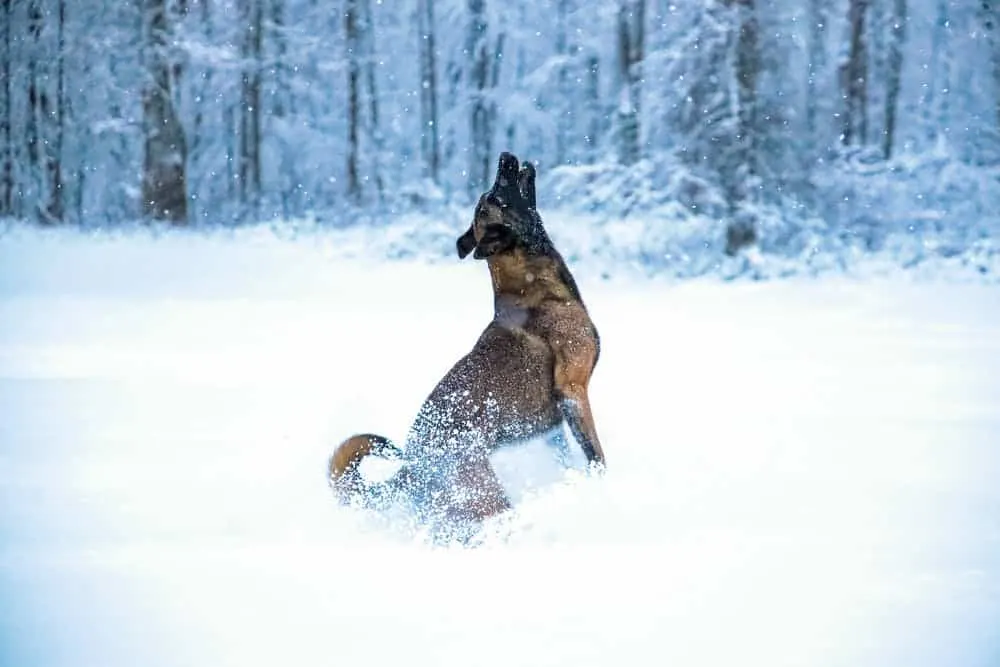
Excitement and Success
Not all howls are due to bad things, nor are they necessarily the result of other sounds.
Sometimes your German Shepherd may howl because he’s very excited about something.
He may also howl to let you know he’s succeeded in doing something and he wants to be sure that you notice.
Pay attention to what’s going on when your dog lets out a howl. Is he excited?
Hunting dogs on the trail of something may start to howl when they find the right trail or sense that they are close to their prey.
That way everybody in the area knows just what’s going on.
Sled dogs, too, are known to howl with the pure excitement of being hitched to a sled.
A howl is also not an unusual way for your dog to announce that she’s managed to do something she’s been trying to achieve.
It may be that she’s located a lost toy, or perhaps she’s been able to climb into your favorite chair or reached a treat on the kitchen counter.
You may not always be as thrilled by her success as she is, but her howl is sure to let you know you’d better look.
Irritation
The long, drawn-out howl from your dog may mean that he’s irritated.
Often the source of irritation is noise, such as a musical instrument played by a child, an alarm clock, or the persistent beeping of a microwave.
Your German shepherd is expressing his feelings of annoyance if he howls at these things.
How do You Know Why Your German Shepherd is Howling?
The truth is, you won’t always know why your dog is howling.
If you look for signs of obvious distress and can’t find anything wrong, and she shows no signs of injury or illness, it’s hard to know what is in your pet’s head that is triggering this reaction.
Listen carefully for any sounds that might be causing him to howl.
There may be a siren in the distance, or it may be something in the music you’re playing or even a sound on television that’s setting him off.
Since his hearing is so much better than yours, just because you don’t hear anything doesn’t mean he can’t.
You may never know what is making your German Shepherd howl, but it doesn’t matter unless the source is some kind of pain or distress.
Look carefully at all of the triggers listed above. If you still don’t know why she’s howling, likely, you’ll never know.
One thing that you can count on is that your dog isn’t howling at the moon.
That myth seems to come from the fact that dogs (and wolves) tip their heads back when they howl, so it seems like their howling at the moon.
According to scientific studies, they are not.
You can read the following article if you want to know Why German Shepherds Cry, and would like understand this behavior.














